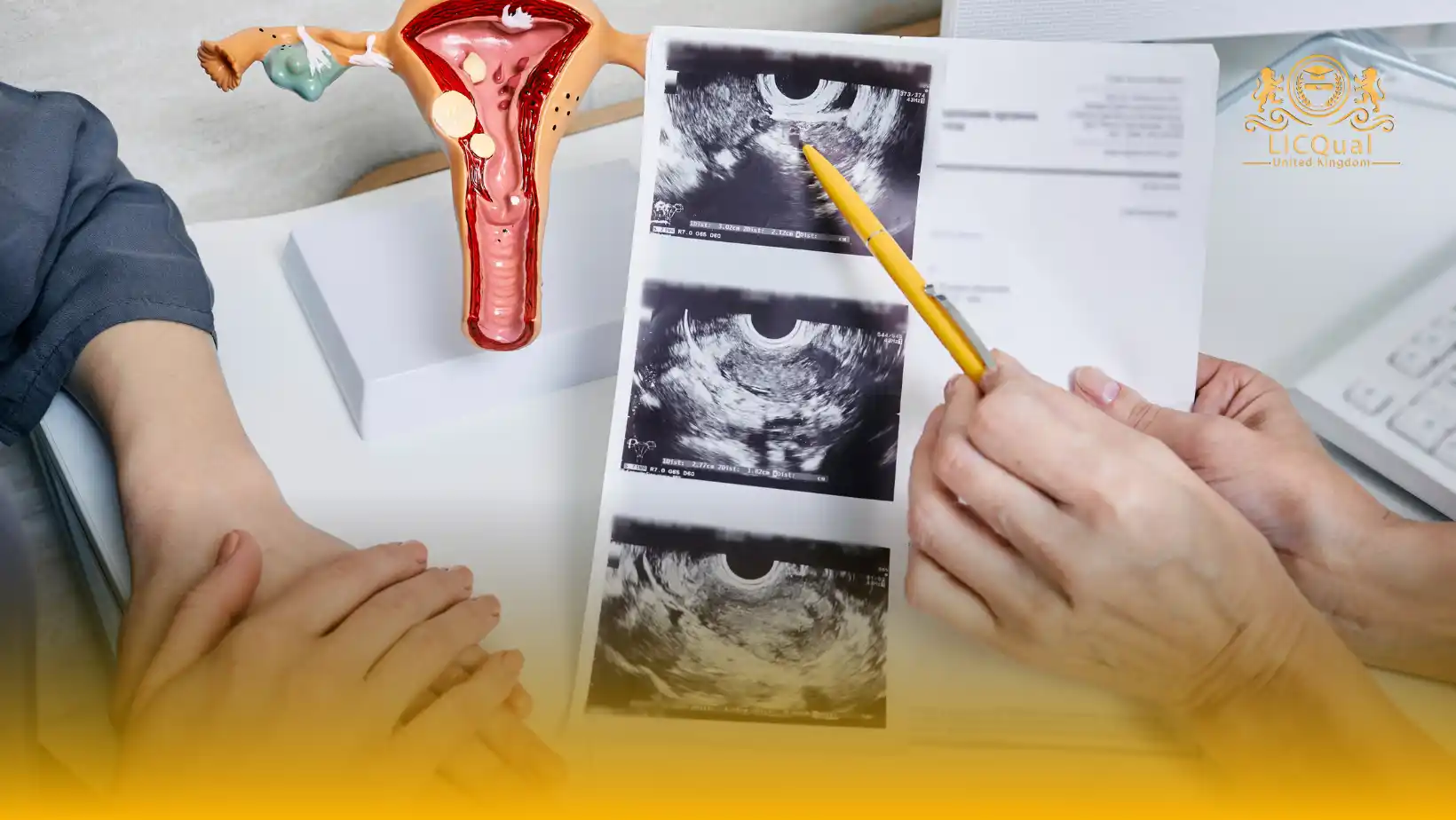The LICQual Level 7 Postgraduate Diploma in Obstetrics and Gynecology (PgD Obstetrics and Gynecology) is a highly respected qualification designed for experienced healthcare professionals who wish to advance their expertise in women’s health. This postgraduate diploma is not intended for fresh entrants but is tailored for qualified practitioners who aim to enhance their career opportunities, deepen their clinical knowledge, and strengthen their Continuing Professional Development (CPD).
Learners undertaking this Level 7 qualification will engage with advanced study units covering maternal health, reproductive medicine, gynaecological conditions, surgical practices, and evidence-based approaches to women’s healthcare. The programme emphasises critical analysis, reflective practice, and the application of research-informed knowledge to clinical decision-making. On completion, learners will possess the advanced skills required to manage complex obstetric and gynaecological cases, contribute effectively to multidisciplinary teams, and improve patient outcomes in diverse healthcare environments.
Centres delivering the LICQual Level 7 Postgraduate Diploma in Obstetrics and Gynaecology must ensure that the highest standards of training are maintained. This includes having competent and qualified staff, access to all required resources, and facilities that support both theoretical learning and clinical practice. By meeting these standards, centres can guarantee that learners receive a rigorous, engaging, and professionally recognised educational experience.
This qualification is ideal for doctors, nurses, midwives, clinical specialists, and healthcare leaders who wish to consolidate their expertise, progress into advanced or leadership roles, and maintain international standards in obstetrics and gynaecology practice.
Course Overview
Qualification Title
LICQual Level 7 Postgraduate Diploma in Obstetrics and Gynecology (PgD Obstetrics and Gynecology)
Total Units
6
Total Credits
120
GLH
600
Qualification #
LICQ2200961
Qualification Specification
To enroll in the LICQual Level 7 Postgraduate Diploma in Obstetrics and Gynecology (PgD Obstetrics and Gynecology), applicants must meet the following criteria:
|
Qualification# |
Unit Title |
Credits |
GLH |
|---|---|---|---|
|
LICQ2200961-1 |
Advanced Maternal and Fetal Health |
20 |
100 |
|
LICQ2200961-2 |
Clinical Gynaecology and Reproductive Medicine |
20 |
100 |
|
LICQ2200961-3 |
Obstetric Emergencies and Critical Care |
20 |
100 |
|
LICQ2200961-4 |
Surgical Skills and Minimally Invasive Procedures in Gynaecology |
20 |
100 |
|
LICQ2200961-5 |
Professional Practice, Ethics, and Healthcare Policy in Women’s Health |
20 |
100 |
|
LICQ2200961-6 |
Research, Innovation, and Leadership in Obstetrics and Gynaecology |
20 |
100 |
By the end of this course, learners will be able to:
Unit 1: Advanced Maternal and Fetal Health
By the end of this unit, learners will be able to:
- Critically analyse maternal physiological changes during pregnancy and their clinical implications.
- Evaluate fetal growth and development using advanced diagnostic and monitoring techniques.
- Assess and manage high-risk pregnancies with evidence-based approaches.
- Apply multidisciplinary strategies to improve maternal and fetal outcomes.
Unit 2: Clinical Gynaecology and Reproductive Medicine
By the end of this unit, learners will be able to:
- Diagnose and manage complex gynaecological conditions using evidence-based methods.
- Critically evaluate approaches in reproductive endocrinology and fertility treatment.
- Apply advanced knowledge of assisted reproductive technologies to clinical practice.
- Integrate gynaecological care with reproductive medicine to optimise patient outcomes.
Unit 3: Obstetric Emergencies and Critical Care
By the end of this unit, learners will be able to:
- Recognise and respond effectively to life-threatening obstetric emergencies.
- Apply advanced decision-making and problem-solving skills in critical care situations.
- Develop prevention and risk-reduction strategies for obstetric complications.
- Collaborate effectively with multidisciplinary teams during obstetric crises.
Unit 4: Surgical Skills and Minimally Invasive Procedures in Gynaecology
By the end of this unit, learners will be able to:
- Demonstrate knowledge of advanced surgical and minimally invasive gynaecological procedures.
- Critically evaluate perioperative care strategies to ensure patient safety.
- Apply surgical principles and techniques in simulated or clinical settings.
- Reflect on professional competence, ethical considerations, and safe surgical practice.
Unit 5: Professional Practice, Ethics, and Healthcare Policy in Women’s Health
By the end of this unit, learners will be able to:
- Analyse ethical and legal frameworks in obstetrics and gynaecology.
- Apply principles of professional accountability and reflective practice.
- Evaluate the impact of healthcare policies on women’s health services.
- Promote culturally sensitive, patient-centred approaches in clinical care.
Unit 6: Research, Innovation, and Leadership in Obstetrics and Gynaecology
By the end of this unit, learners will be able to:
- Design and conduct advanced research relevant to obstetrics and gynaecology.
- Critically appraise academic literature to inform clinical practice and service delivery.
- Demonstrate leadership and innovation in developing women’s health services.
- Implement strategies for continuous improvement and evidence-based practice.
The LICQual Level 7 Postgraduate Diploma in Obstetrics and Gynecology (PgD Obstetrics and Gynecology) is designed for both experienced healthcare professionals and beginners who want to build a career in maternal health and reproductive medicine. This internationally recognized Level 7 qualification provides CPD accredited training, practical skills, and evidence-based knowledge. Whether you are a doctor, nurse, midwife, or a career changer entering healthcare, this program equips you with the expertise to deliver safe and effective obstetrics and gynecology care.
1. Medical Doctors and Physicians
- Strengthen expertise in diagnosing and managing complex obstetric and gynecological conditions
- Gain CPD accredited postgraduate training in reproductive medicine
- Expand practice offerings with advanced maternal health services
- Build authority with an internationally recognized Level 7 qualification
- Meet patient demand for evidence-based obstetrics and gynecology treatments
2. Nurses and Mid-Level Practitioners
- Transition into obstetrics and gynecology with structured postgraduate training
- Learn advanced diagnostic and patient management techniques
- Increase career opportunities in hospitals, clinics, and private practice
- Develop confidence in delivering safe and effective women’s healthcare
- Earn a globally recognized diploma to enhance professional credibility
3. Midwives and Allied Health Professionals
- Diversify practice by adding obstetrics and gynecology specialization
- Master maternal health assessment and patient-centered care strategies
- Attract new patients seeking advanced reproductive health support
- Gain CPD accredited certification for career advancement
- Position yourself as a trusted provider in obstetrics and gynecology care
4. Beginners Entering Healthcare
- Start a career in obstetrics and gynecology with guided, step-by-step modules
- Learn core skills in patient assessment, diagnosis, and treatment planning
- Access internationally accredited postgraduate training without prior specialization
- Build a strong foundation for future advanced qualifications
- Join one of the best postgraduate obstetrics and gynecology courses UK for beginners
5. Career Changers
- Transition into healthcare and obstetrics from other industries
- Acquire practical skills in maternal health and gynecology care
- Gain global recognition with a Level 7 postgraduate diploma
- Explore new opportunities in hospitals, clinics, and private practices
- Build a rewarding career in a fast-growing medical specialty
6. International Healthcare Professionals
- Earn a qualification recognized across global healthcare systems
- Access CPD accredited training aligned with international standards
- Strengthen career prospects in obstetrics and gynecology worldwide
- Learn evidence-based techniques for safe patient care
- Expand practice opportunities in both local and international markets
7. Professionals Seeking Academic and Career Growth
- Advance knowledge with evidence-based postgraduate obstetrics and gynecology training
- Strengthen EEAT compliance with authoritative certification
- Gain expertise in reproductive medicine for career progression
- Build credibility with patients and employers through accredited learning
- Position yourself as a leader in maternal and gynecology education and clinical practice
To deliver the LICQual Level 7 Postgraduate Diploma in Obstetrics and Gynaecology (PgD Obstetrics and Gynaecology), approved centres must meet strict quality standards to ensure excellence in teaching, assessment, and learner success. The following requirements must be in place:
- Qualified Teaching Faculty: Centres must employ highly qualified and experienced professionals in obstetrics, gynaecology, and related medical fields who can deliver advanced-level training and mentorship.
- Adequate Learning Resources: Centres must provide access to up-to-date learning materials, research journals, clinical case studies, and evidence-based resources to support advanced postgraduate study.
- Clinical and Practical Facilities: Centres must ensure access to suitable clinical environments, simulation labs, or partnerships with healthcare institutions to support the development of practical and clinical skills.
- Robust Assessment Systems: Centres must have fair, transparent, and standardised assessment procedures to measure learner knowledge, skills, and professional competencies effectively.
- Learner Support Services: Centres must offer academic guidance, pastoral support, and career counselling to help learners achieve their professional and educational goals.
- Commitment to CPD and Quality Assurance: Centres must implement ongoing staff development, continuous quality assurance processes, and internal moderation to maintain international standards.
- Access to Technology: Centres must provide digital learning platforms, e-libraries, and online communication tools to facilitate flexible and effective learning.
- Compliance with Ethical and Professional Standards: Centres must promote integrity, inclusivity, and learner-centred approaches while adhering to professional and regulatory requirements.
Assessment and Verification
All units within this qualification are subject to internal assessment by the approved centre and external verification by LICQual. The qualification follows a criterion-referenced assessment approach, ensuring that learners meet all specified learning outcomes.
To achieve a ‘Pass’ in any unit, learners must provide valid, sufficient, and authentic evidence demonstrating their attainment of all learning outcomes and compliance with the prescribed assessment criteria. The Assessor is responsible for evaluating the evidence and determining whether the learner has successfully met the required standards.
Assessors must maintain a clear and comprehensive audit trail, documenting the basis for their assessment decisions to ensure transparency, consistency, and compliance with quality assurance requirements.







